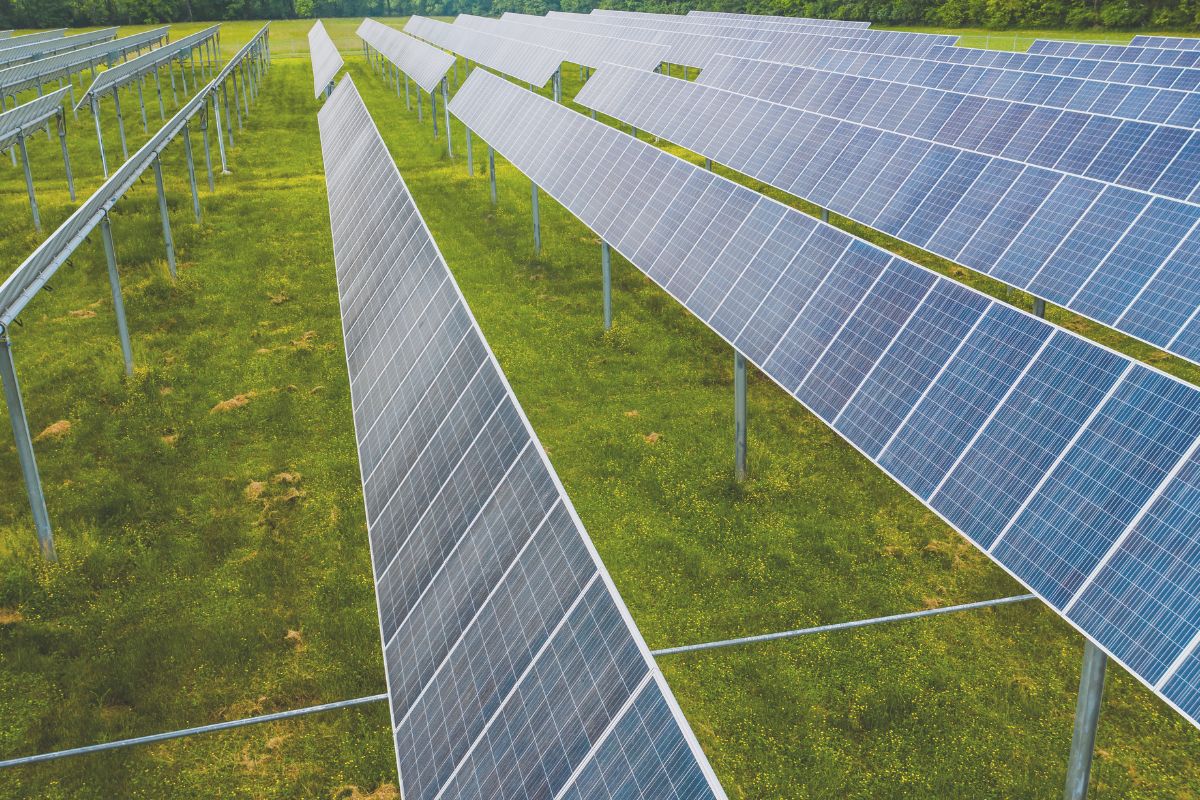Solar power is a shrewd acquisition. It saves money and protects nature. Choosing the right solar PV module is key. It impacts your energy production and savings. You can use such modules for your office/home. This blog will help you find the best module. It will also make an informed judgement.
Picking a Solar PV Module: How to Get the Correct One?
Selecting Solar Pv Modules can be demanding. You will uncover such products offered by many businesses. So, to locate the right one, observe the measures listed below:
Understand Your Energy Needs
Know how much energy you use. Check your electricity bills. Find your daily and monthly usage. More energy needs bigger solar systems. Less energy needs smaller ones. Right-sizing is very important.
Types of Solar PV Modules
There are three main types. Let’s take a look at them in brief:
Monocrystalline Panels
- High efficiency and long life.
- Works well in low light.
- Costs more than other types.
Polycrystalline Panels
- Lower efficiency but cheaper.
- Good for large installations.
- Suitable for sunny areas.
Thin-Film Panels
- Lightweight and flexible.
- Low efficiency and short life.
- Best for portable use.
Consider the Efficiency
Efficiency means how well a panel works. Higher efficiency means more power. It also saves space. Monocrystalline panels have the best efficiency. Polycrystalline is good but lower. Thin film has the least efficiency.
Check Durability and Warranty
Solar panels face sun, rain, and wind. Strong panels last longer. Good brands offer long warranties. Most panels have 25-year warranties. Check for product and performance warranties. Longer is better.
Look at the Temperature Coefficient
The solar panel for home functions less in heat. The temperature coefficient shows this drop. The lower coefficient is better. It means less power loss on hot days.
Think About Space Availability
How much roof space do you have? Higher-efficiency panels need less space. If space is limited, choose monocrystalline. For large spaces, polycrystalline works well.
Check for Certifications
Certifications prove panel quality. Look for IEC and UL certifications. These show the panels meet standards. Good brands always have proper certifications.
Cost vs. Value
Cheap is not always better. High-quality panels cost more. They last longer and work better. Consider value, not just price. Good panels save more over time.
Inverter Compatibility
Inverters convert solar energy to electricity. Not all panels fit all inverters. Check compatibility before buying. Good matching ensures better performance.
Energy Storage Needs
Do you need battery storage? Some systems store energy for later use. If yes, choose panels that work well with batteries. It helps during power cuts.
Maintenance and Cleaning
Solar panels need regular cleaning. That way, it will function perfectly. To conduct the upkeep, you must observe the following pointers:
- Solar panels need regular cleaning.
- Dust reduces panel efficiency.
- Easy-to-clean panels work better.
- Regular maintenance improves performance.
- Check maintenance needs before buying.
- Good upkeep extends panel life.
Installation Quality
Good installation is key. Even the best panels fail with poor installation. Hire certified professionals. Good installation improves safety and performance.
Compare Brands and Reviews
Not all brands are the same. Read user reviews. Compare brand reputation. Good brands offer better service. Happy customers mean reliable products.
Environmental Impact
Solar energy is eco-friendly, but production matters too. Some brands focus on green manufacturing. This reduces pollution and waste. Here are eight key points to consider:
- Green production lowers pollution.
- Low carbon footprints are better.
- Sustainable brands protect the planet.
- Eco-friendly panels reduce waste.
- Renewable energy supports global goals.
- Sustainable choices improve future health.
- Green brands offer long-term benefits.
- Support brands with eco-friendly values.
Scalability for Future Needs
Energy needs may grow. Can you add more panels later? Scalable systems save future costs. Plan for growth when choosing panels.
Government Incentives and Subsidies
Government incentives make solar more affordable. They reduce upfront costs and offer long-term savings. Here are eight key points to know: Many governments provide solar subsidies.
- Subsidies lower the cost of solar systems.
- Tax credits help reduce expenses.
- Rebates give direct financial benefits.
- Local programs offer additional support.
- Incentives encourage renewable energy use.
- Savings improve return on investment.
- Check eligibility and application processes
After-Sales Support
After-sales support keeps your system running. Reliable service helps solve issues quickly. Here are eight key points to consider:
- Good support resolves problems quickly.
- Issues can happen anytime.
- Reliable brands offer 24/7 support.
- Quick service reduces downtime.
- Strong warranties cover major faults.
- Easy access to spare parts helps.
- Good support improves system lifespan.
- Check reviews for service quality.
Conclusion
Picking the exemplary solar PV module is noteworthy. It affects your savings and energy production. Consider efficiency, durability, and cost. Look for good warranties and support. Microtek offers trusted solar solutions. They provide high-quality solar PV modules. Their panels are efficient and durable. Microtek is known for excellent after-sales support. They help you save money and energy. Choose Microtek for reliable solar power. Make the right choice for your solar needs.
















